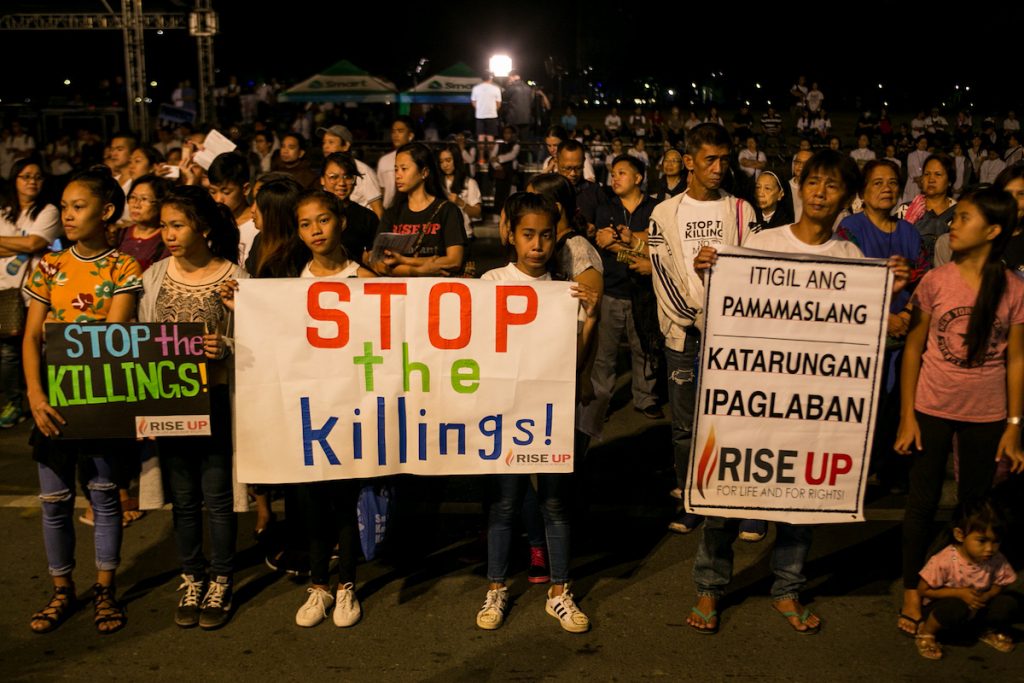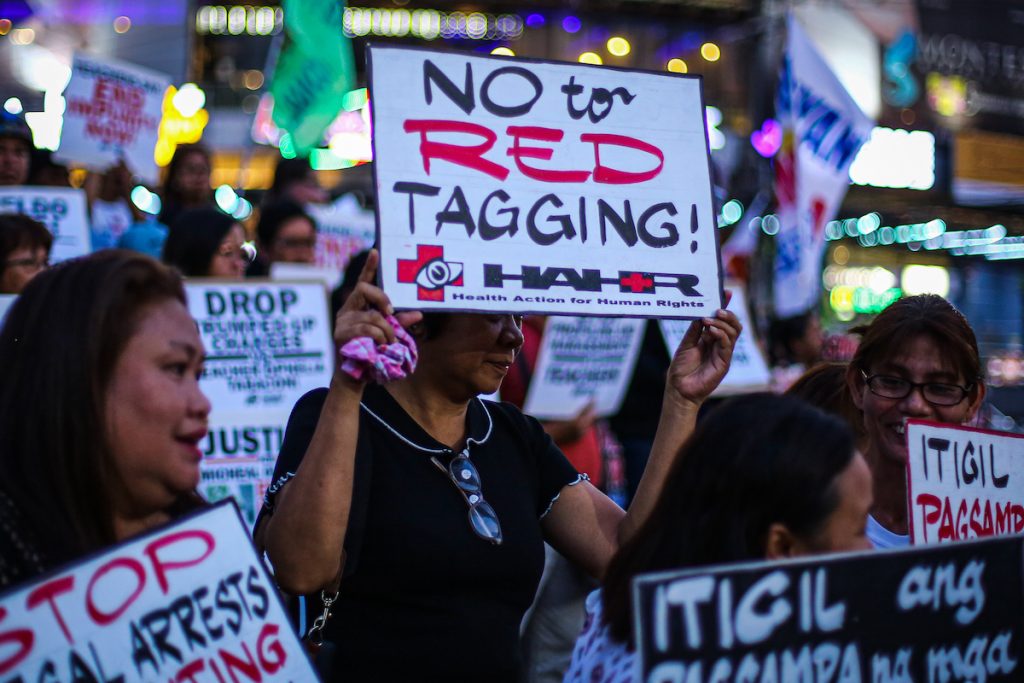International human rights groups continued to call on the United Nations to put pressure on the Philippine government to stop alleged human rights abuses in the country.
The call came as Amnesty International released a new report that accused the administration of Philippine President Rodrigo Duterte of inciting a “wave of extrajudicial executions” and of fueling “a climate of near-absolute impunity for perpetrators.”
The briefing, “My Job is to Kill: Ongoing human rights violations and impunity in the Philippines,” was released on September 25 as the UN Human Rights Council considered its response to a recent UN report on the country’s human rights situation.
The briefing takes its name from a March 2020 speech by President Duterte in which he told local officials: “It is my job to scare people, to intimidate people, and to kill people.”
Amnesty International, together with a coalition of other human rights organisations, urged the UN Human Rights Council to establish an independent body to conduct an in-depth investigation into human rights violations and abuses committed in the Philippines since 2016.
“Four years into his presidency, Duterte has turned the Philippines into a bloodbath where police and unidentified vigilantes are free to kill as they please,” said Rachel Chhoa-Howard, Philippines Researcher at Amnesty International.
“This is not an accidental by-product of his administration, but its central feature,” said Chhoa-Howard, adding that police and other unidentified gunmen know they can kill without consequence.
“They are taking literally the president’s regular incitement to kill, and his promises to protect those who do so – and so should member states at the Human Rights Council,” read the Amnesty International statement.
“The Human Rights Council must not back down now. It must act to prevent further deaths and send a clear message to the perpetrators, and to the government itself: the world is watching and we will not let impunity prevail,” it added.
Amnesty International’s new briefing described how alleged drug offenders and others suspected of committing crimes continue to be killed with impunity, amid years of incitement to violence by Duterte and others in his administration.
Attacks against activists and human rights defenders accused of links to the communist movement have also surged and grown more brazen in recent months while attacks on the media are at their worst levels in decades, according to various rights groups.

Pattern of killings remains
New cases of drug-related extrajudicial executions examined by Amnesty International also remained consistent with patterns that the organization has documented over the four-year course of the so-called “war on drugs” of the Philippine government.
The human rights group noted majority of victims continue to be from poor and marginalized communities and the killings “are covered up by falsified reports” while bereaved families consistently express helplessness at the overwhelming obstacles in pursuing justice.
Amnesty International noted that amid the COVID-19 pandemic, killings are once again rising as Duterte continues to incite violence against people suspected of having committed a crime, including those accused of using or selling drugs.
Analysis of government data by Human Rights Watch has revealed that killings in police anti-drug operations were up by 50 percent during the pandemic. Based on this data, police killed 155 people from April to July 2020, compared to 103 people from December 2019 to March 2020.
In August 2020, Duterte used a speech to instruct the Bureau of Customs to “kill drug smugglers” and said that he would protect its agents from jail, while claiming he had approved the agency’s request to purchase firearms.
He also taunted human rights organisations: “These human rights people are so timid. What do you do? Just count the dead? Sons of b*tches, you should change jobs, not in human rights. Work at morgues if that’s all that you do.”

‘Red tagging’
Amnesty International has also documented how Duterte’s declaration of “all-out war” against “communist rebels,” following the breakdown of peace talks in 2018 has resulted in a raft of arbitrary arrests and detention of people deemed critical of the government, as well as the killing of activists and human rights defenders.
“For years, the authorities have used ‘red-tagging’ to brand and discredit anyone whose human rights campaigning or community work they disapprove of,” said Chhoa-Howard. “Today, red-tagging has become a very real death threat.”
As with relatives of victims of drug-related killings, families and friends of those slain expressed anger and feelings of powerlessness when it came to getting justice. Human rights groups fear that a new and overbroad anti-terror law will only increase the risks faced by activists and human rights defenders.
The UN Human Rights Office documented at least 248 human rights defenders, legal professionals, journalists and trade unionists killed in relation to their work between 2015 and 2019 in the Philippines.
Amnesty International’s briefing described how the culture of impunity has persisted in the Philippines despite international pressure from civil society and human rights organisations over the past four years, culminating in last year’s Human Rights Council resolution 41/2 that mandated a report on the human rights situation in the Philippines by the UN Office of the High Commissioner for Human Rights.
Amnesty International’s findings support the conclusions of the report, which states that the climate of impunity continues and is encouraged by the incitement to violence from “the highest levels of government.”








